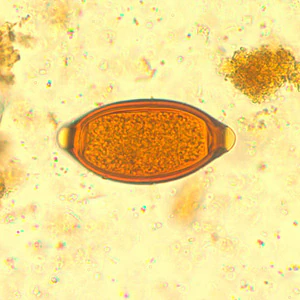 Trichuris trichiura, or whipworm, causes trichuriasis, an infection most common in tropical and subtropical regions. The eggs of the parasite are transmitted through soil contaminated with human feces, often due to poor sanitation. Once ingested, the eggs hatch in the intestines, where the larvae mature into adult worms that embed in the intestinal lining. Symptoms of trichuriasis include abdominal pain, diarrhea, weight loss, and in severe cases, anemia and rectal prolapse in children.
Trichuris trichiura, or whipworm, causes trichuriasis, an infection most common in tropical and subtropical regions. The eggs of the parasite are transmitted through soil contaminated with human feces, often due to poor sanitation. Once ingested, the eggs hatch in the intestines, where the larvae mature into adult worms that embed in the intestinal lining. Symptoms of trichuriasis include abdominal pain, diarrhea, weight loss, and in severe cases, anemia and rectal prolapse in children.
Treating trichuriasis typically involves antiparasitic drugs like albendazole or mebendazole, which help eliminate the worms and reduce symptoms. Eradication of this parasite improves overall digestive health, preventing chronic gastrointestinal issues and anemia, especially in vulnerable populations like children, who are at risk of developmental delays due to nutritional deficiencies.



